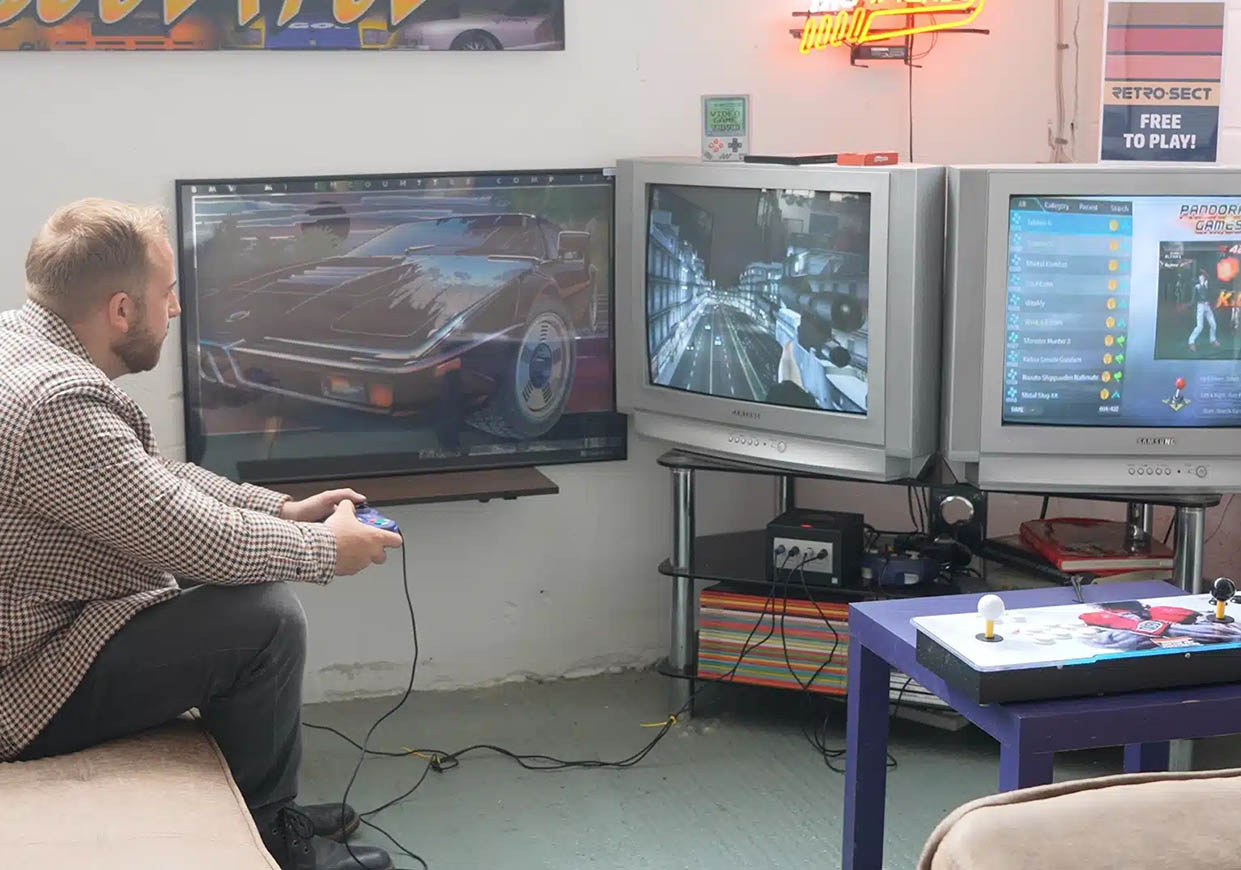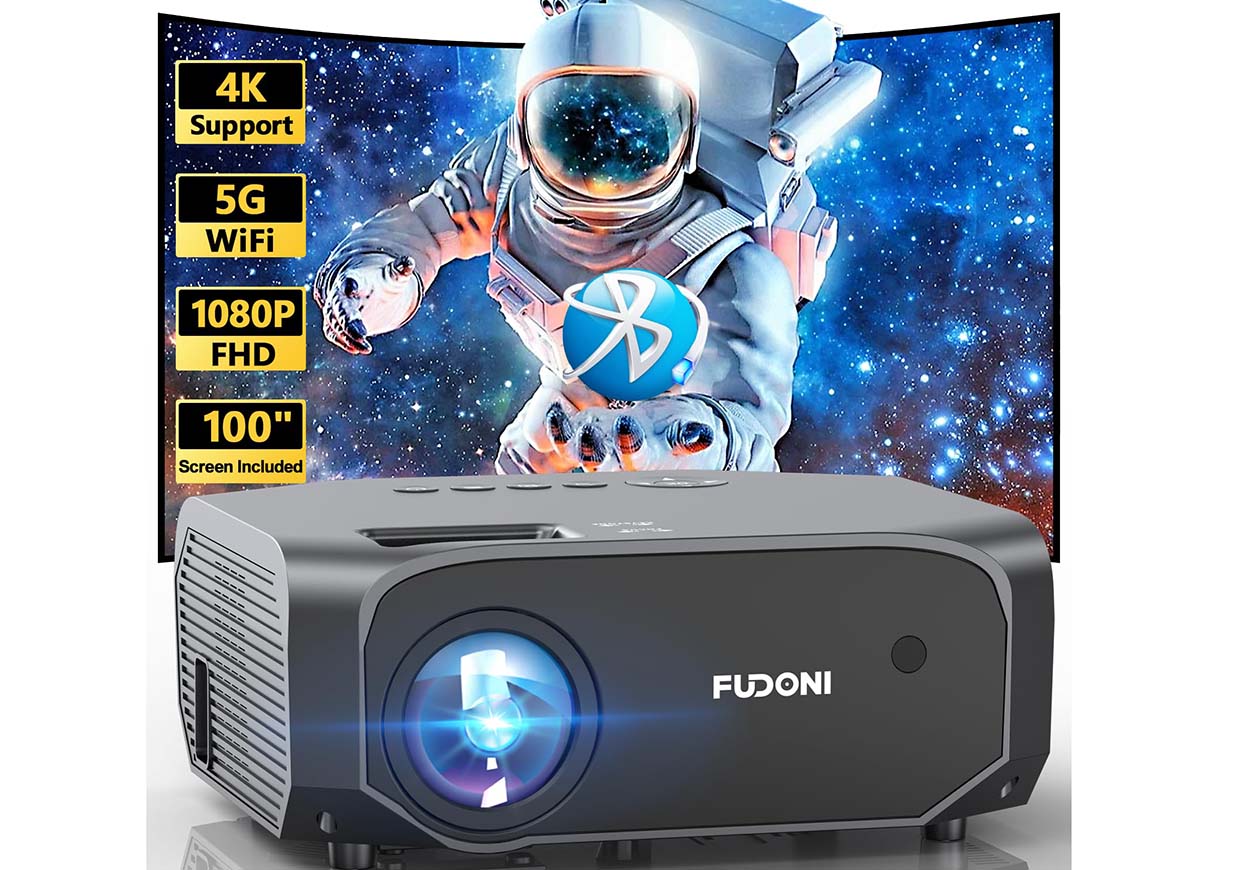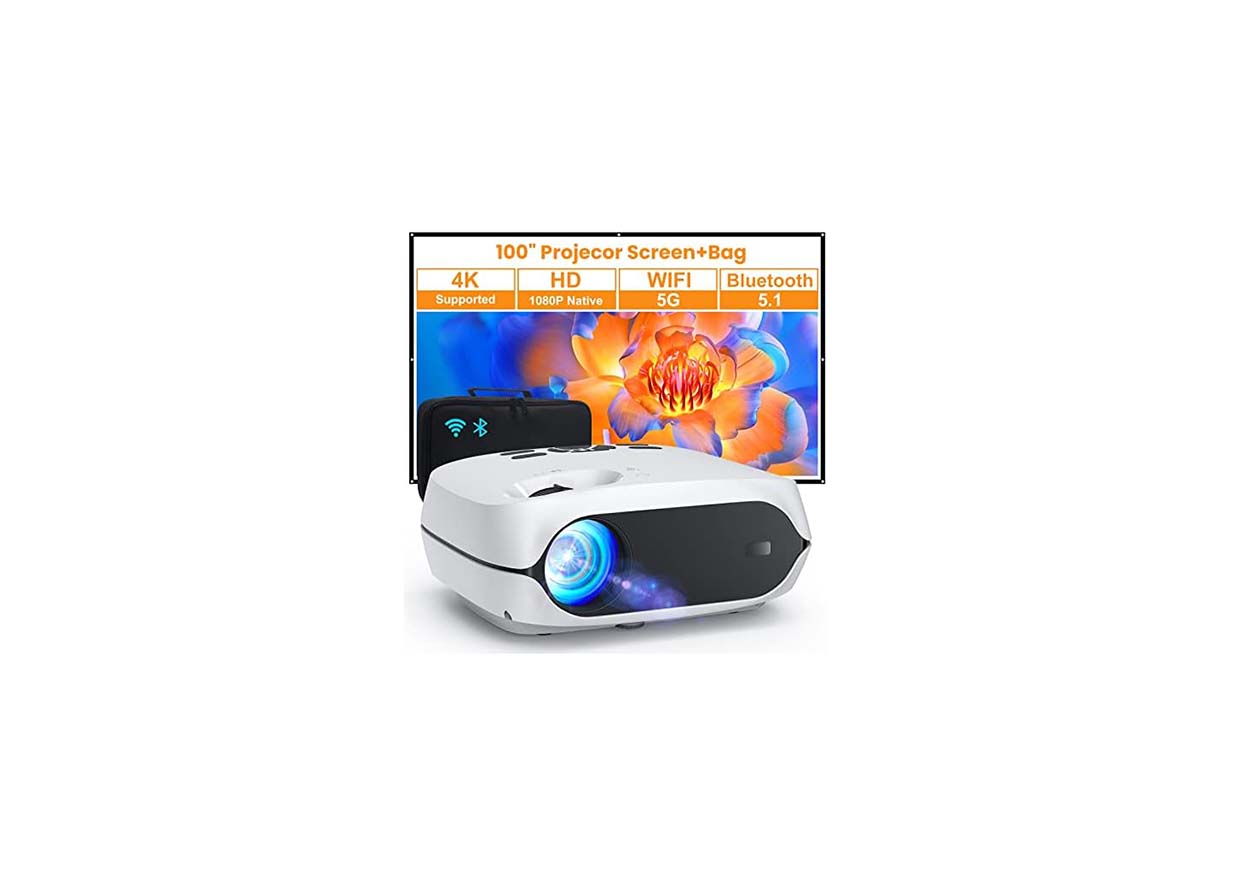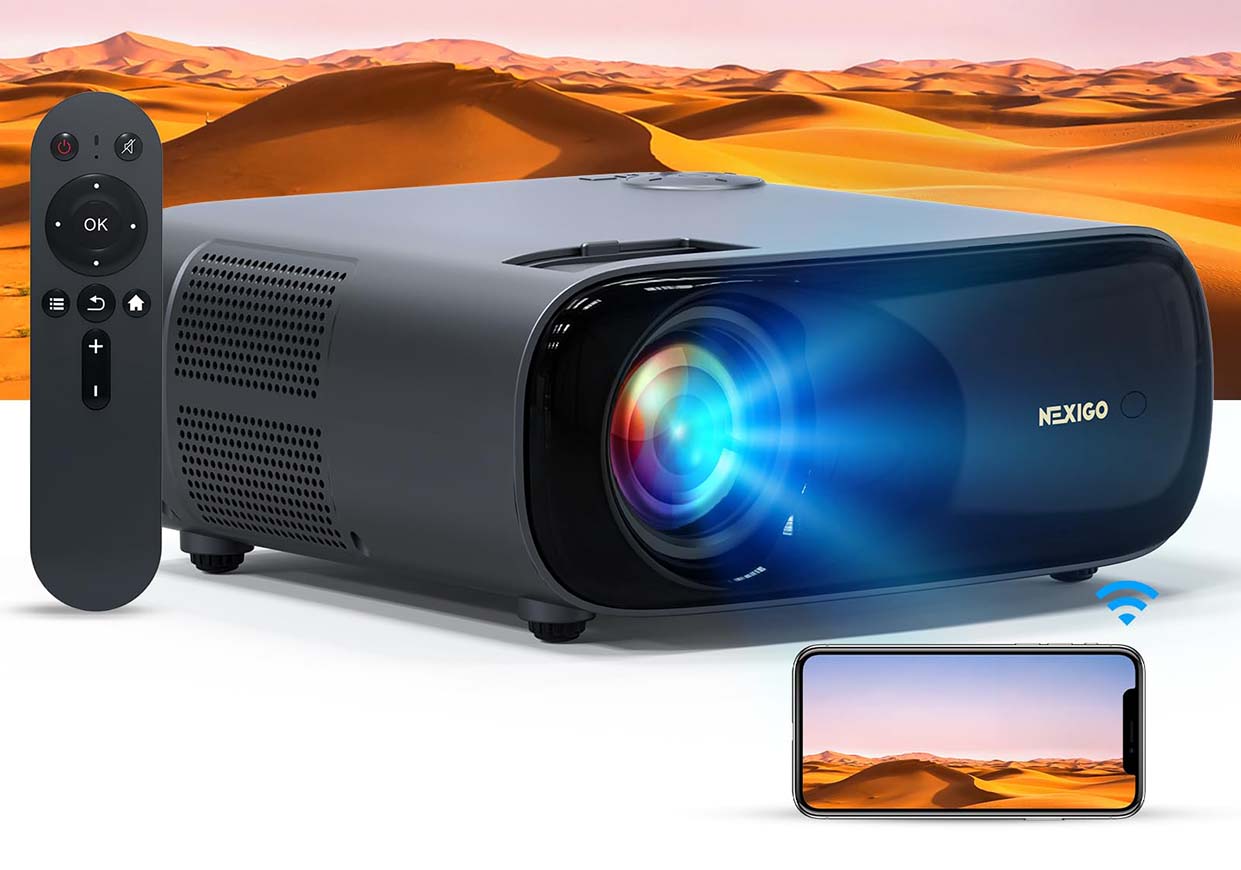Today, setting up a home theater is no longer exclusive to the wealthy—it’s becoming a goal for many households. In this realm, the choice between a TV and a projector can be a tough one. TVs are renowned for their ease of use and sharp image quality, while projectors provide a cinematic, immersive experience. So, which one should you choose for your home? I’ll explore their differences across several aspects—picture quality, size, price, installation, and more—before recommending two excellent projector brands at the end.
Part 1: Picture Quality and Display Performance
1. TV Picture Quality
Modern TVs, especially those with 4K and 8K OLED screens, deliver crisp detail, vibrant colors, and excellent contrast. HDR (High Dynamic Range) further enhances the display, making scenes richer and more dynamic. Whether it’s the fast-paced action in a blockbuster or the fine details in a nature documentary, TVs handle it beautifully.
Advantages
- Brightness: TVs perform well even in brightly lit rooms.
- High Resolution: With most modern TVs supporting 4K or higher resolutions, their sharpness is hard to beat.
- Color Accuracy: OLED TVs, in particular, excel at reproducing vivid colors and deep blacks.
Drawbacks
- Limited Screen Size: Although large TVs (75 inches and above) are available, they’re expensive and may not satisfy the desire for ultra-large screens.
- Space Requirements: Large TVs take up significant space and might constrain your room’s layout.
2. Projector Picture Quality
The primary appeal of a projector is its ability to produce a massive screen. You can easily achieve 100 inches or more, providing a true cinematic experience. Modern projectors offer resolutions up to 4K and support HDR technology, though their performance is more dependent on ambient lighting.
Advantages
- Massive Screen Size: Imagine watching a movie on a 100-inch or larger screen—that kind of immersion is unmatched.
- Portability: Projectors are compact and can be moved easily, allowing flexibility in setup.
- Customizable Size: Adjusting the projection distance changes the screen size, accommodating different room configurations.
Drawbacks
- Light Sensitivity: Projectors need a dim or dark room for optimal performance.
- Slightly Inferior Image Quality: Even high-end projectors can struggle to match the vibrancy and contrast of OLED TVs.
Part 2: Screen Size and Immersion
TV Screen Size
TVs typically range from 32 to 85 inches, with ultra-large models exceeding 100 inches becoming available. However, these oversized TVs come with hefty price tags and require ample wall or floor space.
Projector Screen Size
Projectors shine when it comes to screen size. With the right setup, you can achieve screens exceeding 300 inches. This makes projectors ideal for home theater enthusiasts seeking a larger-than-life viewing experience.

Part 3: Price Comparison
TV Costs
Modern TVs vary widely in price, from a few hundred dollars for entry-level models to several thousand for high-end OLED screens. The cost of ultra-large TVs, however, increases exponentially.
Projector Costs
Projectors also span a wide price range, from $500 for basic 1080p models to over $2,000 for premium 4K devices. You’ll also need to budget for a screen (or settle for projecting onto a blank wall, though this might compromise quality).
Long-Term Costs
Projectors may incur additional maintenance costs, such as replacing bulbs or maintaining laser light sources. In contrast, TVs are generally maintenance-free throughout their lifespan.
Part 4: Installation and Convenience
TV Installation and Ease of Use
Setting up a TV is straightforward—mount it on a wall or place it on a stand, plug it in, and you’re ready to go. Operation is simple, with user-friendly interfaces and quick startup times.
Projector Installation and Use
Projectors require a bit more effort to set up. Considerations include:
- Finding the right placement (ceiling, table, or tripod).
- Adjusting the angle and distance for optimal screen size and clarity.
- Managing ambient light with blackout curtains or similar solutions.
That said, projectors are portable and versatile, making them suitable for outdoor use or temporary setups at friends’ houses.
Part 5: When to Choose a TV vs. a Projector
When a TV Is the Better Choice
- You frequently watch content in brightly lit rooms.
- You prioritize sharp, vibrant visuals with minimal adjustments.
- You want a plug-and-play solution without hassle.
When a Projector Is the Better Choice
- You’re seeking an immersive cinematic experience with a large screen.
- You have a dedicated viewing space with controlled lighting.
- You need portability for use in multiple locations or outdoors.
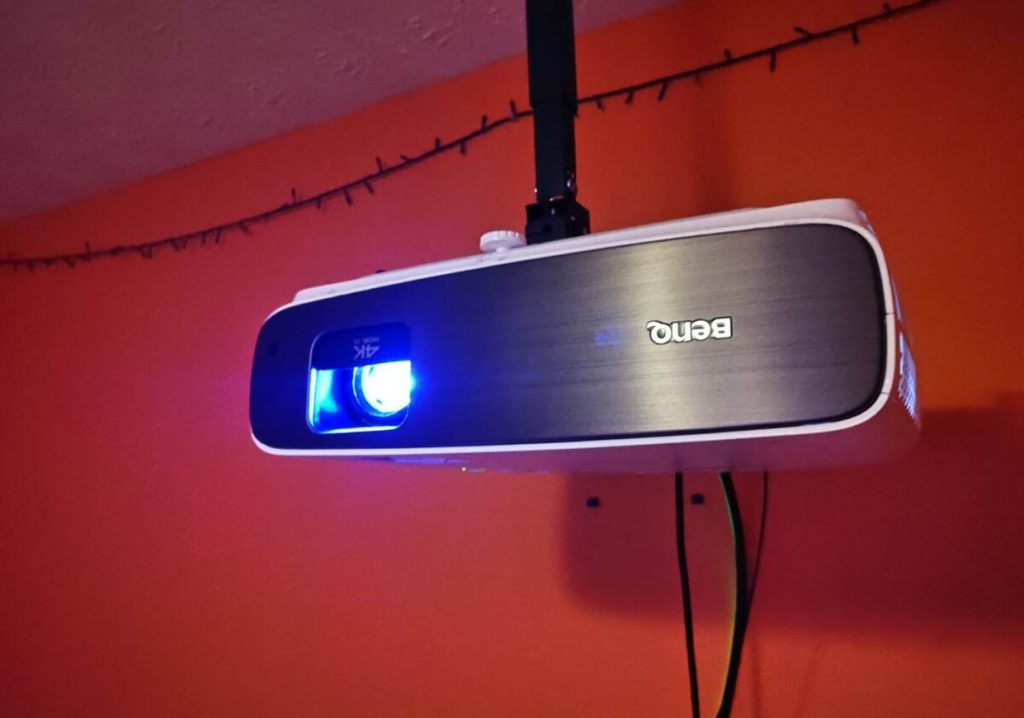
Recommended Projector Brands
1. Epson Home Cinema 5050UB
Epson is a renowned name in the projector market, and the 5050UB is one of the best 4K projectors for home theaters.
- Key Features: High contrast ratio, vibrant color reproduction, HDR support.
- Best For: Users who prioritize superior picture quality and reliable performance.
- Price Range: Around $3,000.
2. BenQ HT3550
If you’re looking for a budget-friendly 4K projector, the BenQ HT3550 is an excellent choice.
- Key Features: True 4K resolution, accurate color calibration, HDR10 support.
- Best For: Home theater enthusiasts seeking high performance at an affordable price.
- Price Range: Around $1,500.
Whether you choose a TV or a projector depends on your specific needs and living situation. If you value sharp visuals, bright environments, and ease of use, a TV is likely your best option. However, if you crave the immersive experience of a giant screen and appreciate flexibility, a projector will deliver the home cinema feel you’re after. I hope this guide helps you make the best decision for your home entertainment setup!
